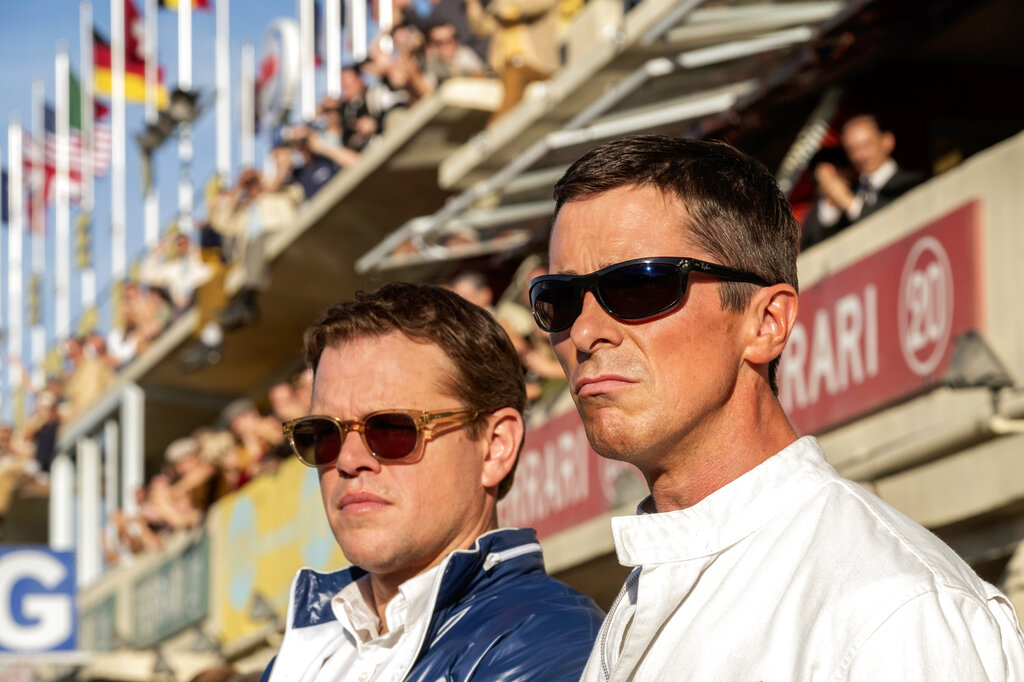Twenty-five years from now, will we be discussing “Ford v. Ferrari” when we talk about the most notable films of the 2010s? What about “Little Women?” Is there any room for “Marriage Story” in that conversation? What will be the place of this year’s best picture nominees in the cultural zeitgeist of 2045?
To understand where these films are fated to fall in the game of immortality, let’s consider how we remember the nominees from 25 years ago. Those films are a mixed bag in memorability. “The Shawshank Redemption,” “Pulp Fiction” and that year’s big winner, “Forrest Gump,” live on in the annals of film history as being mostly well-received and memorable to the masses.
The other two contenders in 1994, “Quiz Show” and “Four Weddings and a Funeral,” have mostly been lost to time. I’ve seen both, and yeah … for good reason. They’re fine to watch through a modern lens (Wow!), but they seem a tad dated, especially in comparison to the revolutionary big three they were contending with.
So let’s think about this year’s nominees. Where will they land on the immortal spectrum?
“Ford v Ferrari”
Bound for a post-Oscars life of being a popular Father’s Day present in 2020, I can see this one becoming a favorite of FX and HBO viewers, but mostly to keep things mindless on a rainy Sunday. It isn’t a mind-bender by any stretch of the imagination and its narrative is the tried-and-true underdog sports story that we’ve seen time and time again.
“The Irishman”
Outside of Northeast Pennsylvania, “The Irishman” will be remembered as being “that old guy Scorsese movie” without ever really holding onto all-time great status. It certainly has its detractors, and it seems likely that it will become a relative footnote in a great director’s brilliant filmography. Netflix is unlikely to allow it be released in any other format other than streaming, perhaps further dimininshing its chances of being considered a film for a wider audience to enjoy.
“Jojo Rabbit”
“Jojo Rabbit” was going for a “Blazing Saddles” vibe, but it never quite hits those notes just right. While “Blazing Saddles” is consciously so racist that it’s anti-racist, “Jojo” has a much more ambiguous moral code. The trouble is, it shouldn’t. There is no grey area when it comes to Nazis. The 2045 college crowd is going to be so retroactively furious in their “Films of Taika Watiti” class.
“Joker”
Now this is the kind of controversial film people will get behind. The pearl clenchers who absolutely despise everything about it have already etched its name as the most notable release of 2019. When the dust of America’s current troubles settles a bit, everyone will think about how much overblown negative press “Joker” got. And then they’ll actually watch the movie and discover that it’s probably better than “Taxi Driver.”
“Little Women”
This version of the oft-told Alcott story will always be lumped in with past adaptations, much like “A Star is Born.” That alone will lift it past obscurity. There’s the added bonus of Greta Gerwig’s snub firing up debate for at least a few more years to help out with its staying power. I suspect that it will pop up around Christmas time as well. Good things lie ahead in the future of “Little Women.”
“Marriage Story”
Do you remember “Kramer vs. Kramer?” The answer to that should guide where you see “Marriage Story” fitting in. I mostly see it as being a film buff favorite, which is more than you can say for some other past best picture nominees. The Netflix of it all doesn’t necessarily help, but maybe I’m completely off base and the whole world actually will adapt to the streaming takeover. If so, “Marriage Story” might actually find a bigger audience than probably anticipated.
“1917”
The one-take gimmick is more common than you may think, so that alone won’t be enough to grant it immortality. The fact that it lost to “Parasite,” despite being the presumptive frontrunner, also didn’t help its case in theory. However, it will likely be able to rely on its overall quality as a war film to remain in the public consciousness for a while. It also won’t have the stink of “that movie that should have lost to ‘Parasite'” attached to it, either. Sometimes it pays to lose.
“Once Upon a Time in Hollywood”
All Tarantino films are destined to be remembered by the general populous, similar to Scorsese’s work. Unlike Scorsese, whose catalogue is over 20 films long, there will only be 10 Tarantino features after he decides to retire from directing. Not to mention, the enormous hive of Margot Robbie, Leonardo DiCaprio and Brad Pitt will keep it afloat as well.
“Parasite”
It’s a winner, and a very good one at that. It bothers no one, unlike real parasites, and best picture winners always have the distinction of triumphing to their name. There’s too much history and quality going on here for it to get locked in the forgotten movie pile mounting in your basement.
And that’s that. Three will be easy to recall (“Joker,” “Once Upon a Time in Hollywood” and “Parasite”), four will achieve some notoriety (“Ford v Ferrari,” “The Irishman,” “Little Women,” “1917”), one will find a niche audience (“Marriage Story”), one may be destined to fade from memory (“Jojo Rabbit”), and one columnist has written way too much and is probably wrong. See you in 25 years!

Sam Zavada is a copy editor with The Standard-Speaker in Hazleton. He previously served as the news clerk at The Standard-Speaker, working with the obituaries and the community and lifestyle pages. Sam’s work in print dates back to his time at King’s College, where he spent two years as the editor in chief of the school’s newspaper, The Crown. Earlier in his time with The Crown, he worked as a staff writer and the entertainment manager. Contact him at szavada@standardspeaker.com.



